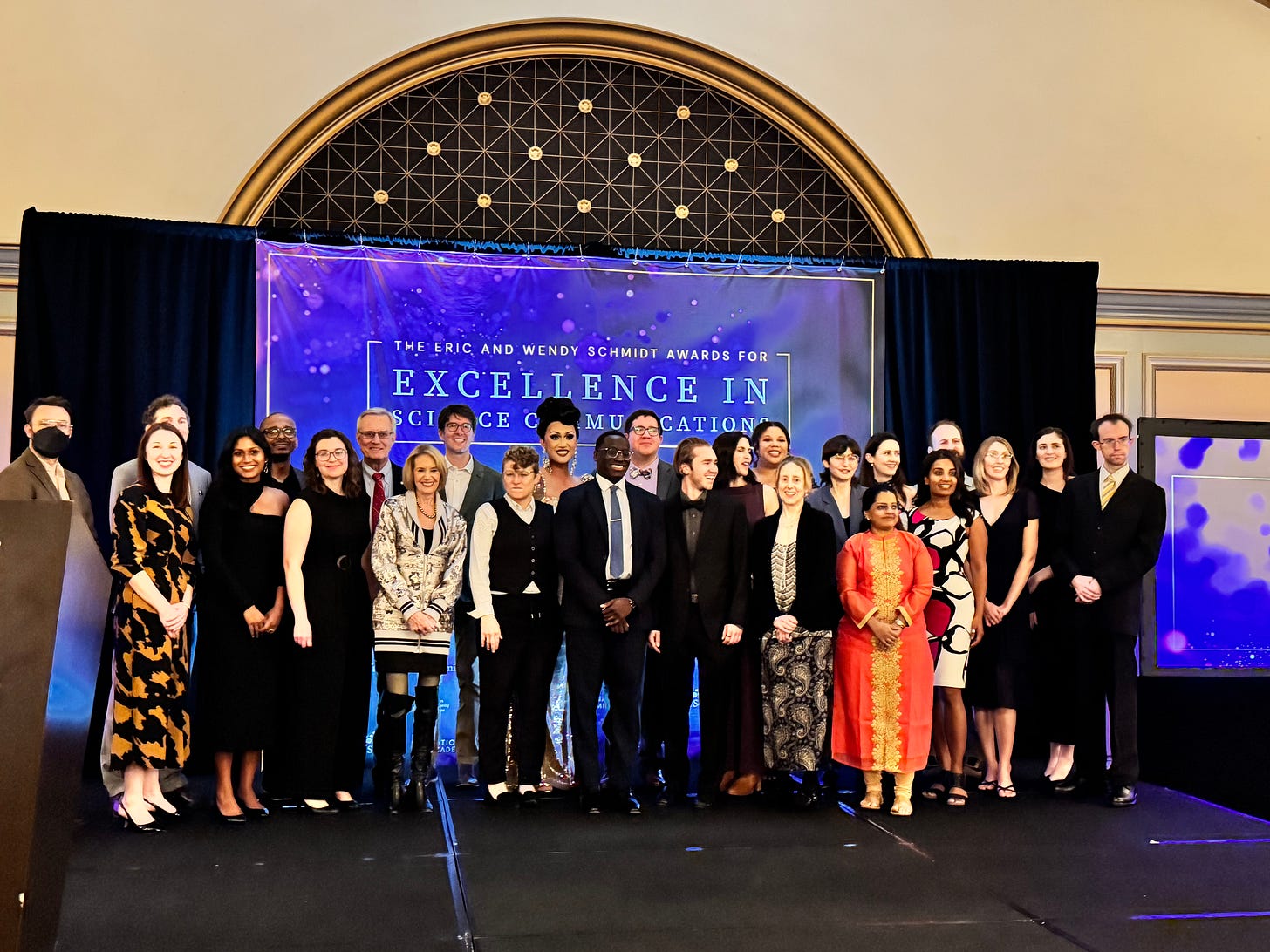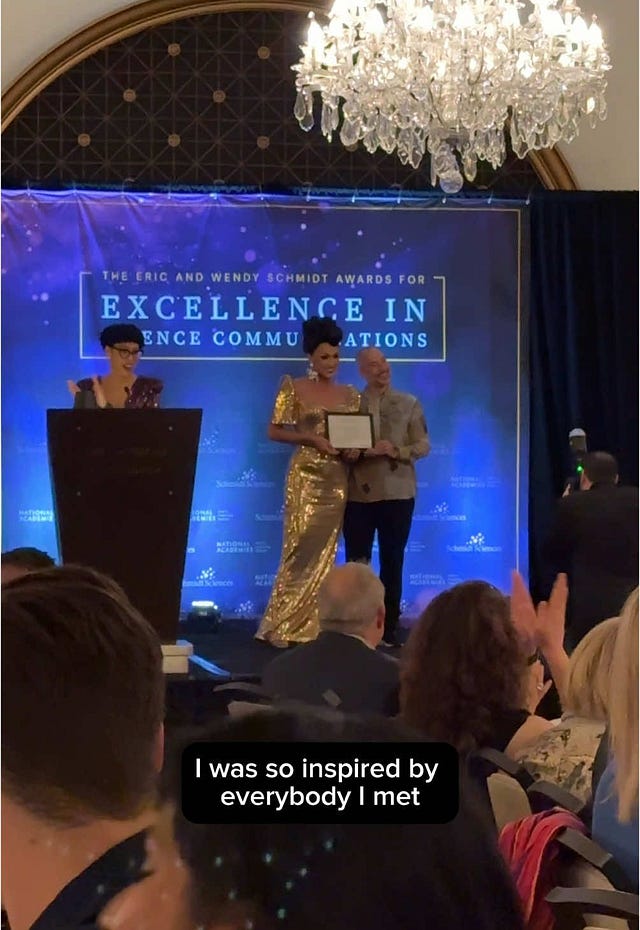Hey everyone! I’m writing this from Pasadena, California where I’ve just attended a science communication workshop as an awardee of the National Academies Eric and Wendy Schmidt Awards for Excellence in Science Communications.

The other awardees included journalists who write about science, and scientists who have a flair for outreach. And me, a math-teaching drag queen on social media. Check out this video I took of some of the folks I met and the interesting work they’re all doing:
In a recent blog post where I talked about first receiving the award, I wrote about the importance of science communication as a way to bridge science and public outreach. In this post, I wanted to write about some of the big questions and discussions we had about the future of science communication. Starting with this question:
What is the role of a science communicator?
Is our goal simply to educate people, or are we also trying to influence their beliefs and habits? Alec Luhn, a fellow awardee, wrote a piece called “Stop Planting Trees, Says Guy Who Inspired World to Plant a Trillion Trees”, which covers the story of Thomas Crowther, an ecologist whose research inspired initiatives to plant a trillion trees around the world. Science communicators passed along the word to media outlets everywhere, and we had Shell and Donald Trump joining the tree-planting craze instead of actually trying to lower carbon emissions. Crowther’s message got misinterpreted--planting a trillion trees isn’t enough. We need to protect existing forests and lower carbon emissions. Planting a bunch of trees could actually have harmful effects on the environment if done haphazardly. Was the trillion trees initiative an example of science communication done correctly or incorrectly? Should we be focused on inspiring decisive action, or careful nuance?
What can we do about people’s falling trust in journalists and scientists?
The PEW Research Center published a study, Americans’ Trust in Scientists, Positive Views of Science Continue to Decline. People who trust scientists are more likely to get vaccines for COVID-19 and the flu, and they’re also more likely to say that human activity contributes to climate change. If you believe that these are good things, then should the goal of science communication be to make people trust scientists? Should science communicators thus avoid exposing hypocrisy and corruption in science, or should they solely focus on truth even if it might harm people’s trust in science? Should scientists and science communicators take sides in political debates?
The question of whether science and politics can or should be separated leads to another discussion we had, which is about the spread of misinformation.
What’s the best way to combat misinformation?
It’s said that a lie travels halfway around the world before the truth makes it out the front door. Misinformation and rage-bait headlines spread much faster and wider than lengthy nuanced articles in science magazines. I met Alex Dainis, a science communicator with a PhD in genetics who made YouTube videos during the pandemic about how mRNA vaccines work, and she shared some of the discussions she had with people who had vaccine hesitancy. In my opinion she’s doing God’s work. I am personally pretty pessimistic about whether civil conversations can be had on the internet anymore, and whether they’re worth my time. How do we reach people who aren’t open to changing their minds?
How should science communication be funded?
Most science communicators are journalists, who either work for news organizations like Scientific American, Mother Jones, or the Charleston Gazette. The majority of journalists I met were freelancers that pitch stories to multiple organizations, but I learned it can be hard to make a living in this career. The media landscape is changing--fewer people are reading newspapers and magazines, and TikTok is about to be banned in the US (RIP me).
The award I got came from Schmidt Sciences, founded by the former CEO of Google, Eric Schmidt. Save for philanthropic billionaires, is there any other market value to science communication? There’s always the private sector, but this can come with tricky ethical dilemmas. What if an oil company wants to sponsor a story about fossil fuels?
Who else is willing to fund science communication? Academia seems like a natural fit. One awardee I met comes to mind, Dr. Sanjana Curtis, an astrophysicist at UC Berkeley who also makes science videos on TikTok. Scientists like her are probably the most qualified people to communicate their research to the public, but I learned that science outreach is something that most universities tolerate, it’s not something they necessarily celebrate. A fellow awardee Dr. Marshall Shepherd wrote more about this phenomenon. Even Carl Sagan was once rejected from the National Academy of Sciences because his peers frowned upon his public outreach efforts.
If scientists and universities don’t appreciate the value of outreach and communication, who will? If science communication is important (and I’m willing to hear arguments that it isn’t), then why doesn’t the market treat it as such? Why are talented science writers only making $1 per word?
Despite my apparent despondency, I really had a great time at the workshop and left feeling inspired and encouraged. I’m hopeful for the future of science communication, whatever it may look like!





